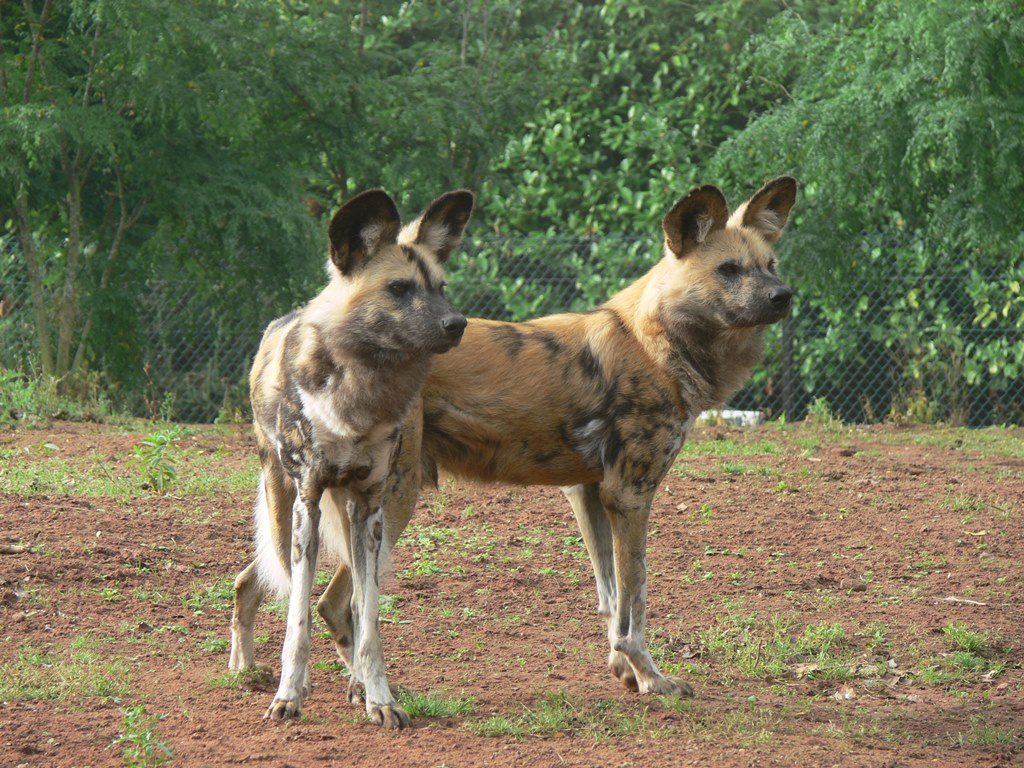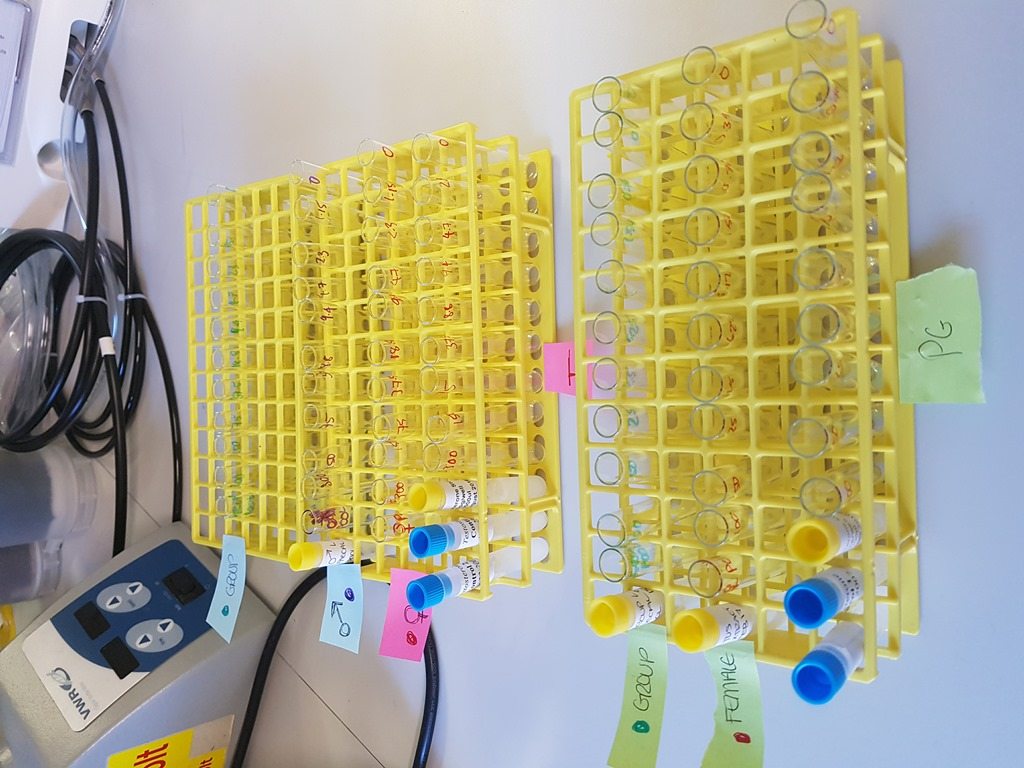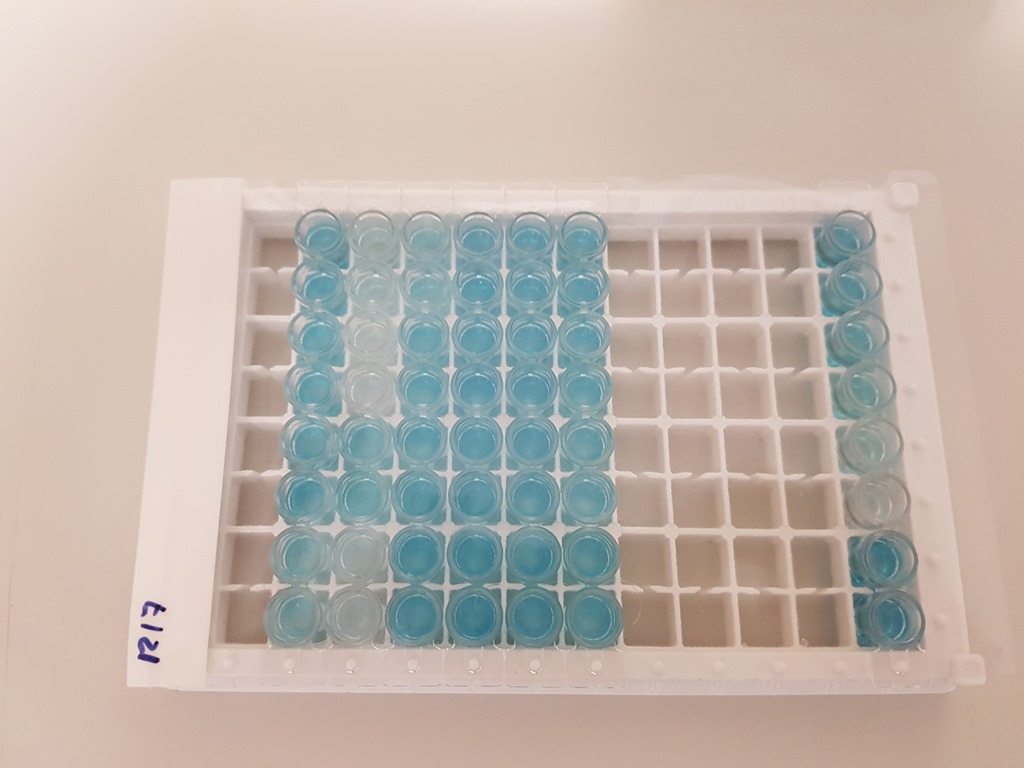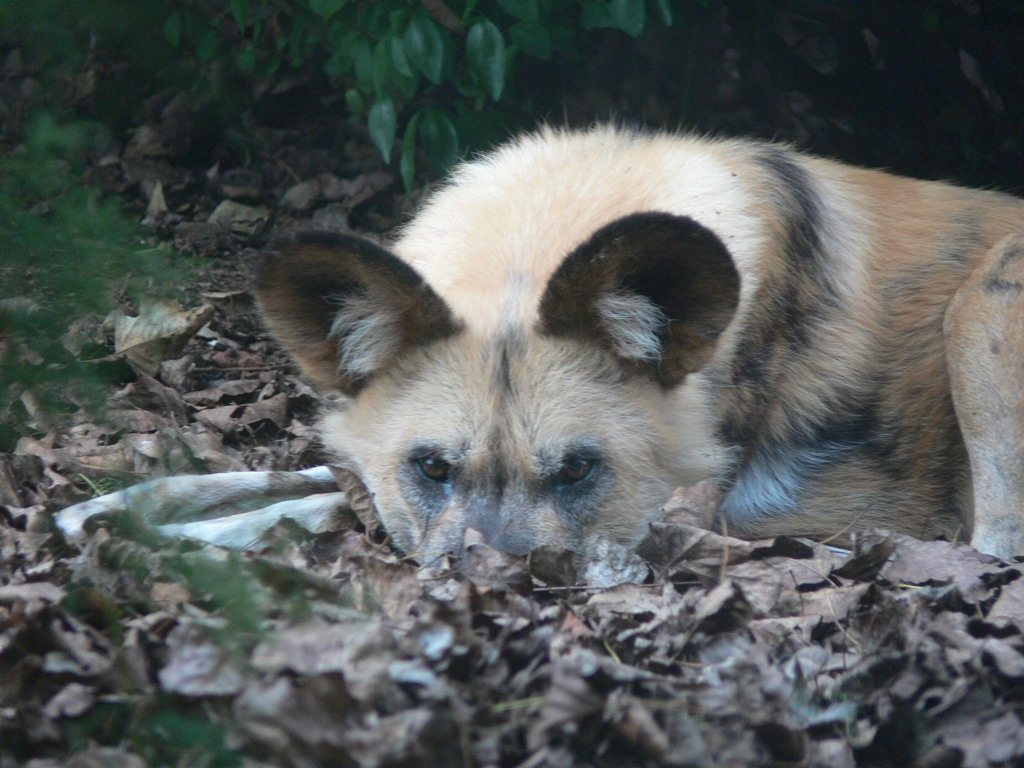Rhiannon Bolton, student from the University of Liverpool, tells us more about her work at Chester Zoo below:
“The only thing I thought I was ever going to do was work in animal wellbeing and conservation. I completed a Masters degree in conservation related veterinary science and endocrinology (the study of hormones) and I was then lucky enough to become a Chester Zoo Conservation Scholar. My PhD combines all my favourite things which are animal wellbeing, conservation and endocrinology; and will hopefully enable me to make a difference!
“My main focus is on cooperatively breeding mammals, a breeding system whereby other individuals in addition to the parents help to raise the offspring. Often, only one alpha female and one alpha male will reproduce but other family members are expected and needed to help with raising the next generation. This phenomenon only occurs in about 3% of mammal species, making them absolutely fascinating. Unfortunately, many of these incredible mammal species are threatened with extinction and some are so rare that conservation breeding is now a really important safety net to ensure their survival in the long run.

“The African painted dog is one of these species and I have the chance to study it for my research. Their Latin name Lycon pictus means ‘painted wolf’ – highlighting their beautiful coat patterns. They may look a lot like the domestic dogs we have at home but three million years of evolution in a slightly different direction have resulted in them only having four toes on their front feet instead of the normal five found on dogs. Sadly painted dogs are listed as Endangered by the International Union for the Conservation of Nature and they are known to be one of the world’s most threatened carnivores. Much of their continuous decline is due to human activity and there are now less than 1,500 mature painted dogs left in the wild. We, therefore, have a responsibility to do something about it!
“In addition to the conservation work Chester Zoo contributes to in the Mkomazi Game Reserve in Tanzania, a stable global ex situ population of painted dogs is needed to prevent the species’ extinction. In their natural habitat painted dogs live in large packs of around 20 adults and have a large home range. They work together to hunt for prey and the pack assist the breeding pair to rear pups. Painted dogs compete for dominance status to breed and the young leave their natal packs around two years of age. Due to their natural family dynamics and large home range, painted dogs can be challenging to breed in ex situ conditions and aggression can occur when the pack is establishing who will be the breeding pair. If we can determine which factors cause heightened aggression in ex situ populations, we may be able to identify practical solutions to improve breeding success and minimise aggression.

“I am approaching this challenge from three different angles: at the University of Liverpool I work with wild house mice, another mammal that shares parental responsibilities. The mice breed in semi-naturalistic conditions and I can see if maternal influences or the post-natal environment can influence mouse behaviour when they grow into adults. Although these controlled conditions are impossible to replicate in endangered species management, the results should provide an understanding of which factors are important in influencing behaviour allowing these to be focused on in ex situ populations. In addition to behavioural studies, I also look at the physiology behind the varying behaviours using non-invasive samples such as urine and faeces.

“In parallel, I have been following the painted dog pack here at Chester Zoo. I have conducted behavioural observations from when the pack first arrived at the zoo and were introduced to each other to over two breeding seasons with all the highs and lows of sibling rivalry. At the same time, faecal samples were collected for hormonal analysis. By combining hormonal and behavioural data our aim is to identify a specific trigger that can be used to predict outbreaks of future aggression.
“As part of my PhD, I am also working with the painted dog studbook keeper and European Taxon Advisory Group (TAG) for canines to widen my study to the European zoo population of painted dogs. We have designed a questionnaire to gather more information about behaviour and breeding success which will not only increase the sample size of my study but also enable us to look further into which factors promote cooperation and good breeding success within this species.
“The great thing about working with the TAG means that our research findings can have an impact not just on the dogs studied here but could influence the reproductive success of breeding packs across Europe! We have already had a number of positive responses from various zoos who work with the species which highlights the importance of this work.

“As well as hoping to make a difference to animal welfare and improve conservation breeding, this research project allows me to work with many incredible experts. Half of the time I work with the amazingly knowledgeable Mammalian Behaviour and Evolution Group at the University of Liverpool, and the other half, I’m working with Chester Zoo’s Applied Science team. I’ve also had the opportunity to work with keeping staff, vets and members of the wider zoo community across Europe. All are extremely professional and dedicated to their work in improving the wellbeing of animals at the zoo and to the greater goal of conservation.
“In the future, I hope the knowledge I have obtained during this research can be used as an insight to improve fertility and wellbeing of other endangered animals.”
Rhiannon Bolton is a NERC funded PhD student on the Adapting to the Challenges of a Changing Environment Doctoral Training Programme from the University of Liverpool. Rhiannon is supervised by Professor Paula Stockley, Professor Jane Hurst, Dr Lisa Holmes and Dr Sue Walker.